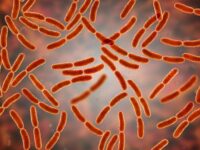 In a new report the sexually transmitted disease, Gonorrhoea will become an untreatable disease, England’s chief medical officer has warned.
In a new report the sexually transmitted disease, Gonorrhoea will become an untreatable disease, England’s chief medical officer has warned.
Dame Sally Davies has written to all GPs and pharmacies to ensure they are prescribing the correct drugs after the rise of “super-gonorrhoea” in Leeds.
Her warning comes after concerns were raised that some patients were not getting both of the antibiotics needed to clear the infection.
Sexual health doctors said gonorrhoea was “rapidly” developing resistance.
A highly drug-resistant strain of gonorrhoea was detected in the north of England in March.
The disease is caused by the bacterium called Neisseria gonorrhoea.
The infection is spread by unprotected vaginal, oral and anal sex.
Symptoms can include a thick green or yellow discharge from sexual organs, pain when urinating and bleeding between periods.
Often the person has no symptoms, however, but can still easily spread the disease to others. Untreated infection can lead to infertility, pelvic inflammatory disease and can be passed on to a child during pregnancy.
Gonorrhoea is the second most common sexually transmitted infection in England and cases are soaring.
The number of infections increased by 19% from 29,419 in 2013 to 34,958 the following year.
A”horror story” emerging!
Earlier this month Chinese and Danish academics discovered that super bugs have breached the last line of antibiotic defences: They were quick to announce a worldwide epidemic was inevitable!
It came after a patient in Denmark had become infected with an untreatable form of salmonella.
They also discovered untreatable bacteria in 5 samples of chicken imported from China via Germany. Experts fear it is the start of a global epidemic of untreatable infections.
The Danish scientist who made the alarming discovery told the Daily Mail he would be ‘very surprised’ if the bug was not already in Britain.
The grim announcement comes just 3 weeks after Chinese academics discovered that super bugs had breached the last line of antibiotic defences for the 1st time.
The Chinese team had warned that the hyper-resistant bugs were likely to spread fast – but last night experts said the speed at which they had travelled to Europe was extremely serious.
Colistin – a drug classed as ‘critical’ to human medicine – was until recently the only antibiotic to work after all others had failed.
But experts [in November 2015] identified the 1st germs to become resistant to the drugs, and warned of the ‘inevitable’ spread of uncontrollable super bugs which attack the blood and lungs.
They discovered mobile gene called MCR-1, which made bacteria such as E. coli [Escherichia coli], salmonella and germs [that] cause pneumonia untreatable.
Critically, they found that the gene could easily be transferred to other types of bacteria, meaning it could spread quickly between animals and humans.


